Martin Antonenko
A Fixture
- Joined
- Jul 11, 2008
- Messages
- 8,821
The "Geat Facing on the Ugra" ...
In the year 1480 two hostile armies stood ready to fight on the Ugra River (a tributary of the Oka, southwest of Moscow):
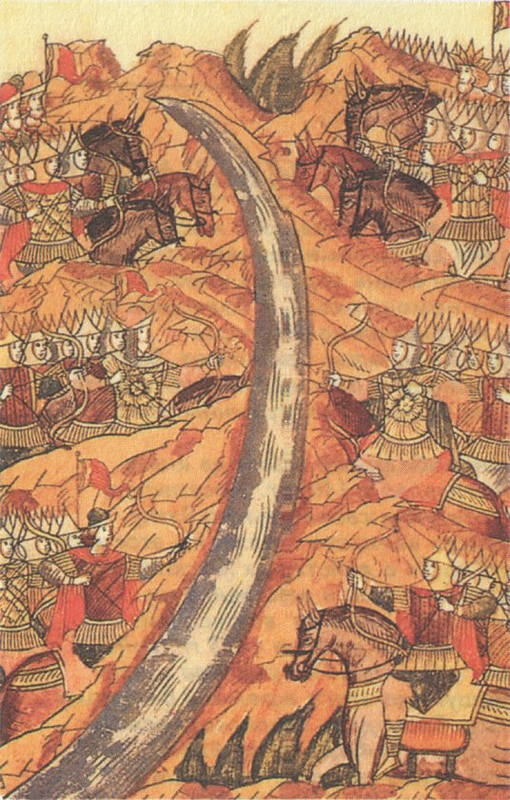
On the western side, the Russian army under Tsar Ivan III ...
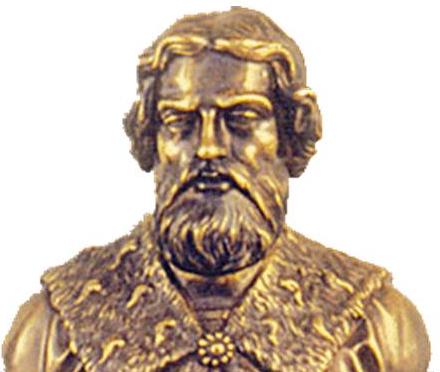
... of 100,000 men unfolds its order of battle.
On the opposite bank are the Tatars of the "Golden Horde", who were led by Akhmat Khan ...
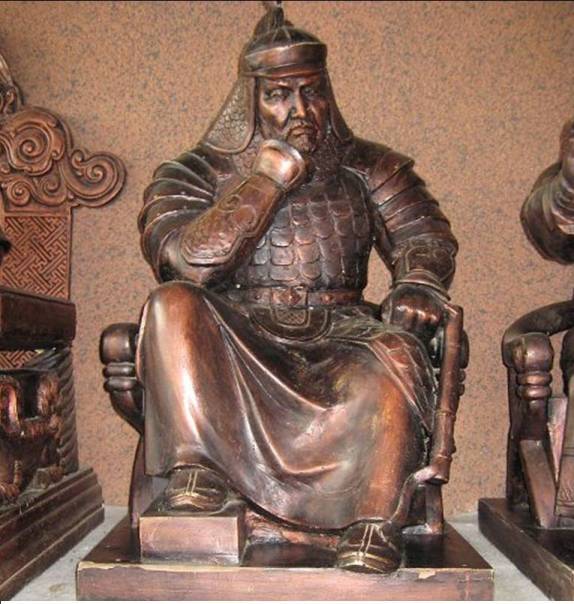
... be commanded.
The Khan is on his way to Moscow with his army to punish what he sees as insubordinate vassals! Moscow is tributary at all times under the rule of the Tatars and the Khan.
The presence of the Russians prevents the Tatars from crossing the river - the attempt is canceled.
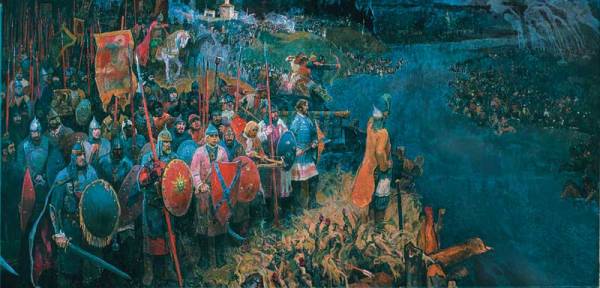

Then both armies face each other on the different banks - and wait.




Akhmat Khan has more cavalry, but is numerically weaker than the Russians and is still waiting for an allied contingent that Poland-Lithuania should send to his aid.
While the Tatars are waiting, the Russians are constantly receiving reinforcements.
Meanwhile, there is no fighting.

After 17 days of waiting, when the river slowly iced over (so even the Russian foot soldiers, who are considerably superior in number, can cross the river) and when the promised reinforcements have still not arrived, the Tatars withdrew on November 11, 1480 (our era ) back without a fight.
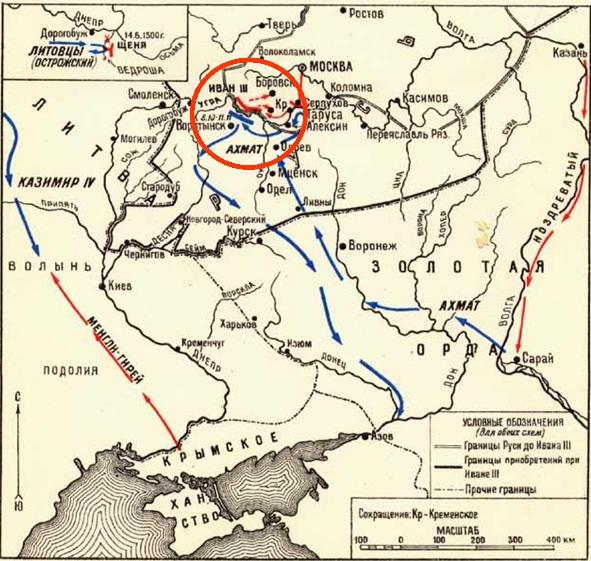
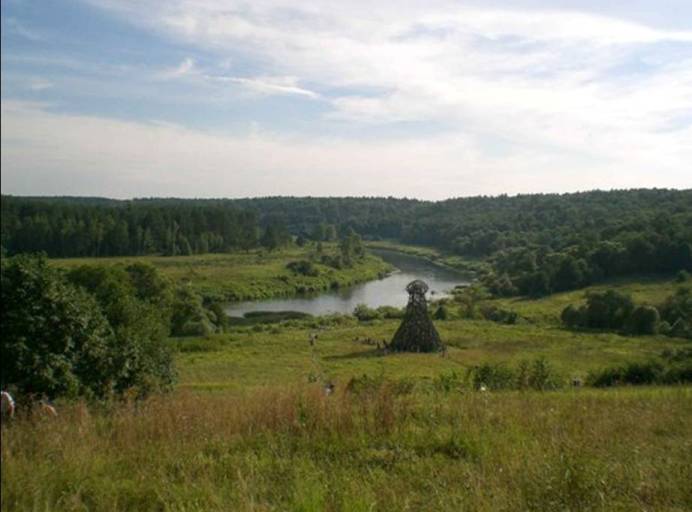
The event went down in Russian history as the “Great Facing on the Ugra” - after all, it ended the centuries-long rule of the Tatars over Russia - and ultimately also contributed to the disintegration of the “Golden Horde”.
In the next picture from a chronicle, the Tatars bow to the Mother of God after the "Great Facing" - medieval propaganda ...
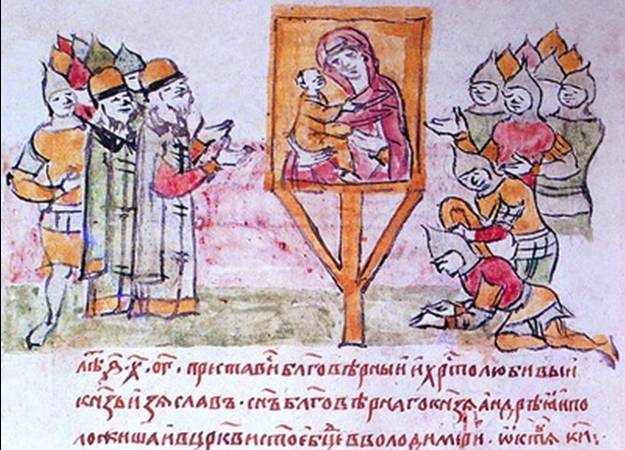
Of course, today there is a monument at the place of the "Great Facing" ...:

In the year 1480 two hostile armies stood ready to fight on the Ugra River (a tributary of the Oka, southwest of Moscow):

On the western side, the Russian army under Tsar Ivan III ...

... of 100,000 men unfolds its order of battle.
On the opposite bank are the Tatars of the "Golden Horde", who were led by Akhmat Khan ...

... be commanded.
The Khan is on his way to Moscow with his army to punish what he sees as insubordinate vassals! Moscow is tributary at all times under the rule of the Tatars and the Khan.
The presence of the Russians prevents the Tatars from crossing the river - the attempt is canceled.


Then both armies face each other on the different banks - and wait.




Akhmat Khan has more cavalry, but is numerically weaker than the Russians and is still waiting for an allied contingent that Poland-Lithuania should send to his aid.
While the Tatars are waiting, the Russians are constantly receiving reinforcements.
Meanwhile, there is no fighting.

After 17 days of waiting, when the river slowly iced over (so even the Russian foot soldiers, who are considerably superior in number, can cross the river) and when the promised reinforcements have still not arrived, the Tatars withdrew on November 11, 1480 (our era ) back without a fight.


The event went down in Russian history as the “Great Facing on the Ugra” - after all, it ended the centuries-long rule of the Tatars over Russia - and ultimately also contributed to the disintegration of the “Golden Horde”.
In the next picture from a chronicle, the Tatars bow to the Mother of God after the "Great Facing" - medieval propaganda ...

Of course, today there is a monument at the place of the "Great Facing" ...:

